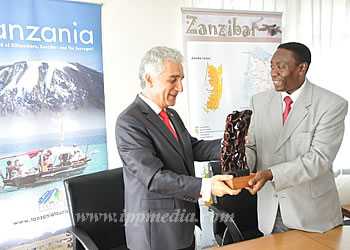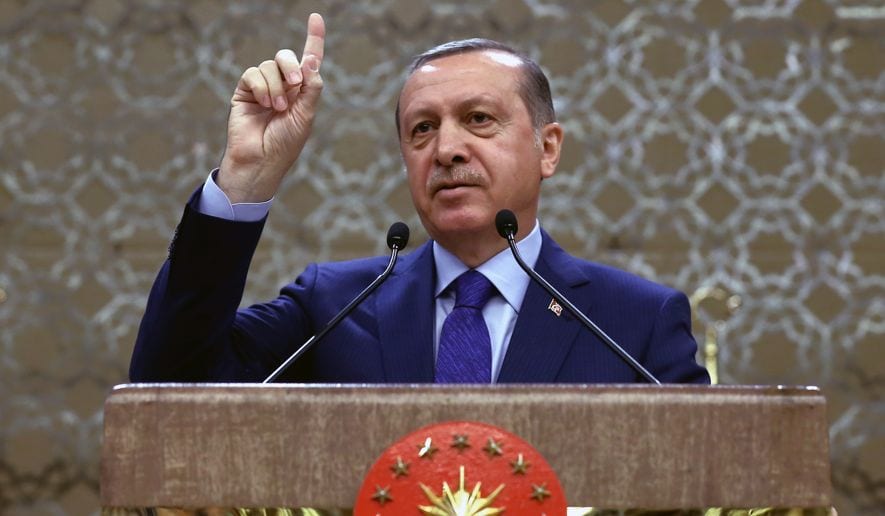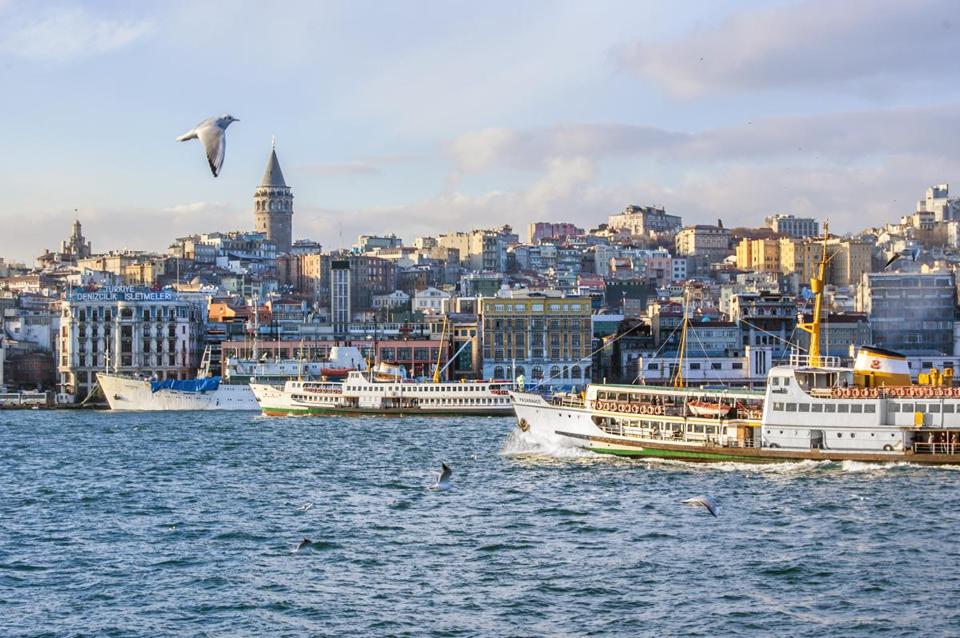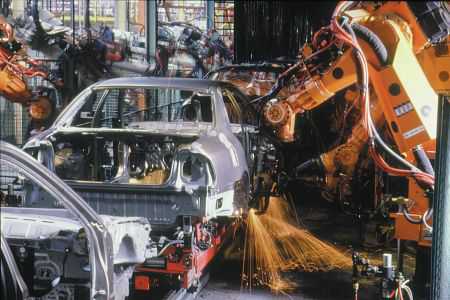Rwanda and Turkey share more than a desire to expand business relations
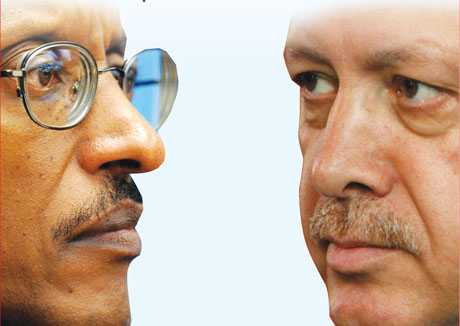
It didn’t take long for Inanc Ciftci, a successful Turkish businessman and Rwanda’s current honorary consul in Turkey, to realize there was something distinct about this small, beautiful country. After accompanying Turkish President Abdullah Gul on a trip to Dar es Salaam in 2009 to explore the possibility of opening a consulate in Tanzania, Inanc found himself both inspired and determined to find a role for himself on the African continent. “My heart changed with that visit,” he recounts from his office in a quiet, residential neighborhood of Istanbul, Turkey’s commercial capital. “The people were poor but smiling and they looked up to us for help.”
After making his fortunes in numerous sectors including real-estate and communications, Inanc had both the time and contacts to contribute, but when he inquired about Tanzania and Uganda, there were no positions available; Burundi, he says, proved to be a little too disorderly for his liking; but when he arrived in Rwanda for the first time a little over 20 months ago, he discovered a country that had “positive energy” and that was clearly in a class of its own.
The first indication came when Inanc attempted to meet President Kagame. In other countries meeting top officials to express his interest in a diplomatic position and provide relevant documents had proved easy. In Rwanda, it did not. Nevertheless, after seeing Tony Blair casually walking around the lobby of the Kigali Serena during his first trip, “I immediately became convinced we needed to set up a consulate in this country,” he says. Inanc subsequently submitted his CV to the ministry of foreign affairs and when Foreign Affairs Minister Louise Mushikiwabo came to Istanbul roughly five months later Inanc was charged to facilitate meetings on her behalf. The two, he says, had a good rapport from the beginning and several months later on Feb. 14, Inanc was appointed honorary consul.
Sitting in the crosshairs of Europe and the Asia (Istanbul is actually situated on both continents) you wouldn’t think that Rwanda and Turkey would have too much in common. But according to Inanc, Rwanda, in many ways, resembles the Turkey of 1985, when things in the country, he says, “we’re just starting to pick up.” Inanc also points out that both countries have many of their citizens living abroad, and as two countries that set standards for their region—Turkey in the Middle East and Rwanda in Sub-Saharan Africa—both are at once envied and somewhat isolated by their neighbours. “They’re like successful students,” he says. “Other students don’t always like you.”
But the comparisons don’t end there. In a recent Time profile entitled “Erdogan’s Moment” it is made apparent that, in reputation at least, Turkish Prime Minister Recep Tayyip Erdogan and President Kagame share a good deal in common as well. Both men, for instance, have been widely praised for fixing their country’s troubled past—in Turkey an omnipotent military and in Rwanda a catastrophic genocide—and pursuing economic policies that have developed their economies beyond all expectations. Under Erdogan, Turkey’s per capita GDP has grown from $3,492 to $10,079 and its budget deficit has fallen by two-thirds. In 2010, Turkey’s GDP grew 8.9 percent compared to 1.9 percent in the European Union. In Rwanda, the country has achieved an average annual growth rate of six percent between 1995 and 2004 and 7.3 percent since 2004.
Both leaders have also been criticized for what critics perceive as autocratic tendencies. In Erdogan’s case, according to Time, this has stemmed from “running roughshod over political rivals, tossing enemies into jail and intimidating the media.” 68 journalists, the publication reports, have been imprisoned for complicity in coup plots. In Rwanda, Kagame has notoriously been a target for human rights groups and in a recent speech delivered in Kigali by Susan Rice, the American ambassador to the U.N. noted that “the political culture in Rwanda remains comparatively closed [and] civil society activists, journalists, and political opponents of the government often fear organizing peacefully and speaking out.”
The men’s sensitive, outspoken temperaments have also been the subject of much debate and scrutiny. During a 2009 panel discussion in Davos, Switzerland, months after Israel launched a three week assault in Gaza that had jeopardized Turkey’s efforts to bridge a peace agreement between Israel and Syria, Erdogan publically reprimanded Israeli President Shimon Peres, telling him, “You know very well how to kill,” before angrily walking off the stage. Comparatively, Kagame has also not been shy to express his contempt; in June he responded to Human Rights Watch and Amnesty International allegations that he was denying Rwandans basic freedoms by saying that he didn’t, “give a damn what they say or do,” and that such organizations should just “get lost.”
But despite their at times contentious reputations, the achievements and influence of both leaders cannot be denied. During the recent U.N. General Assembly in New York Erdogan was applauded by US President Barack Obama for showing “great leadership” in the region, while praise for Kagame’s achievements have been repeatedly highlighted by such individuals as Bill Clinton and Tony Blair. Both men have also used their international clout to push for a greater regional influence; Erdogan has repeatedly been at the centre of Arab-Israeli mediations, and this year the Turkish PM personally flew into Mogadishu to underscore his country’s commitment to Somalia’s reconstruction. Kagame, meanwhile, has dispatched peacekeepers to places such as Darfur and Haiti.
The two leaders have also proven undaunted to take potentially unpopular political stands: Erdogan called for Syrian President Bashar al-Assad’s immediate resignation weeks before the Arab League developed a similar position, and Kagame called on the African Union to support Libyan rebels in the overthrow of Muammar Qaddafi when the bloc still stood behind the former Libyan strong man.
Perhaps, subconsciously it was Kagame’s similarities to Inanc’s own prime minister that endeared him to the Rwandan president. During a visit to Kigali in June, Inanc was hosted by the president to discuss investment opportunities for Rwanda in Turkey and Inanc says he was thoroughly impressed with Kagame’s intelligence and seriousness. Inanc naturally keeps photos of Kagame in his office and enthusiastically refers to the president as a “father” and a “brother” before adding that in Rwanda, “you can sense that everyone is part of the same family.”
But in his brief time as honorary consul Inanc has given Kagame reason to consider him family as well. As honorary consul, Inanc works “voluntarily” often putting in long hours and exhausting his extensive network of contacts for Rwanda’s benefit because he believes in Kagame’s vision and values the appreciation he receives for his work when he visits Rwanda.
One telling example of this commitment took place on Feb 25, 2011—just 11 days after Inanc was appointed honorary consul—when he received a phone call from Mushikiwabo seeking his assistance to rescue 30 stranded Rwandan students caught in the violent upheaval in Libya.
“Have you not tried to call on your ambassadors in Italy or France or Belgium,” Inanc asked Mushikiwabo. “What can I do? I’m a businessman in Turkey.”
But the minister was adamant, he recounts. Support was not forthcoming in those countries and Inanc’s help was required.
Combing through a list of contacts in his mind, Inanc called on a friend at the Turkish ministry of foreign affairs who called on another friend who worked as an assistant to Turkey’s ambassador in Libya. After lengthy back and forth conversations it was agreed that the 30 students were to gather at the airport in Tripoli under a Turkish flag and wait to be evacuated. “I spent three days without sleeping,” recalls Inanc, “calling each student individually, telling them to go to the airport.”
Meanwhile, he says, he was on the phone with his “big brother,” Turkish Airlines CEO Dr. Temel Kotil. Kotil, who was busy helping his government evacuate Turks from Libya, was initially reluctant to get involved. “I kept telling him,” says Inanc, “that if you do this Rwanda will never forget.” Eventually Kotil relented and a Turkish Airlines plane was dispatched to pick up the group of Rwandans along with a group of Turks, many of whom questioned why 30 Rwandans were joining them back home on their national carrier. When the Rwandans reached Kigali two days later, celebrations were held and Inanc was inundated with thank you letters. “Everyone wanted to meet me,” he recalls.
But this was just the first of Inanc’s impressive deliveries. A month later when Mushikiwabo arrived in Istanbul seeking meetings with Turkish Airlines officials, Inanc surprised her with an informally arranged lunch meeting with Kotil himself. The two discussed the prospect of an Istanbul-Kigali route, but Kotil, says Inanc, remained skeptical. How much interest and traffic, questioned Kotil, could that route generate? When Inanc showed his “big brother” that the Dutch carrier KLM was flying from Amsterdam to Kigali four times a week, Kotil became increasingly interested and within days a Turkish team arrived in Kigali for a six hour visit. During that brief time, says Inanc, a verbal agreement was reached between the airline and Kagame, and two days later Rwandair CEO John Mirenge was amongst a delegation that flew to Istanbul to sign a Memorandum of Understanding (MOU) with Turkish Airlines, marking April 1, 2012 as the first Istanbul-Kigali bound flight.
The Istanbul-Kigali flight connection is only likely to embolden business ties between the two countries, which commenced even before Inanc’s appointment. According to John Gara, Rwanda Development Board CEO, trade between Rwanda and Turkey in 2010 amounted to $7.5 million, with Rwanda importing a sizeable quantity of construction materials and equipment, plastics as well as edible products from Turkey. Products from Turkey, explains Faustin Mbundu, chairman of the Private Sector Federation (PSF), are attractive to Rwandans “because of their very high European quality, but they don’t have European prices.”
But with Inanc’s help and the cultivation of relations between the two countries, both Gara and Mbundu are confident that these figures will only grow. “We expect recent positive developments in relations,” wrote Gara in an email to The Independent “to result in greater opportunities in agricultural exports. Among these are certainly coffee exports.” Mbundu goes even further, arguing that Rwanda can even become a source of meat for Turkey—a country where cows cost several times more than they do in Rwanda. “Argentina is able to export their meat to Turkey,” exclaims Mbundu. “Why can’t we?”
Since assuming his position, Inanc has led numerous groups of Turkish businessmen to Rwanda in order to help them personally unearth the potential of the country. Trips can include meetings with ministers and RDB representatives, and also cultural attractions such as Kwita Izina, the ceremony for naming baby gorillas.
According to Minister of Trade and Industry Francois Kanimba two clear large-scale commitments from Turkish businesses—a pit ground project to generate approximately 300MW of energy and a mining project to explore gold—have resulted as a product of such interactions, and many more are expected. “Turkey is a very strong, emerging economy,” says Kanimba, “and there is a very dynamic group of international investors looking to invest in developing countries.” In addition to meeting prospective Turkish investors in Rwanda, Kanimba , together with Minister Mushikiwabo, Infrastructure Minister Albert Nsengiyumva, RDB’s Gara and 15 Rwandan businessmen, had the opportunity to cultivate relations on Turkish soil when they visited the country in mid-Sept. for the unveiling of Rwanda’s new consulate and RDB office in Istanbul.
Murat Ozis, the general director of Atlantis Gold and Mining Co., is one Turkish investor eager to get to work in Rwanda. After being approached by Inanc—a man he considers a trusted businessman and valuable friend—about opportunities in Rwanda, Ozis visited the country for himself and was immediately impressed with how safe and organized it was and how informed local officials were. Atlantis, says Ozis, applied for and received its company registration in a single day, started to draft a business plan and in no time at all was able to observe positive outcomes. The company has already conducted an expedition to determine the geological characteristics and precious metal potential of the Burera region and hopes to start production no later than 2013.
“We have never took Rwanda as a regular African country and came with expectations,” writes Ozis from Istanbul. “Still we had to see about the state`s position regarding foreign investment. I can truly say that with our first visit our expectations were lifted even higher. We observed the opportunities and clean environment for making business.”
Rwanda’s reputation, he adds, is beginning to cause a buzz in Istanbul’s business community. “I know that besides our company there is around fifty big-scale investors from Turkey that are interested in and visiting Rwanda,” he says. “I believe this interest will have continuity because I frequently receive phone calls from the businessmen asking about the environment, economy and opportunities of Rwanda and my observations. Rwanda is making its name as a trustworthy country in the minds Turkish businessmen.”
Turkish businessman Aydin Basyart, CEO of Tahincioglu Holding Company and Nova Group, one of the leading European companies in the indoor and outdoor visual communications and shop fitting industries, echoes Ozis’ enthusiasm. “To develop your business you need local alliances to help with contacts and research,” explains Aydin. After a recent visit to Kigali, procured and organized by Inanc, of course, Basyart says he got the sense that Rwanda was a good place to establish these networks. “It’s a peaceful and organized country and the government is quite sincere about attracting foreign investment and parties. They listen to you and want to make things lucrative to you. This attracted us,” he says. “They also communicate that they don’t allow corruption.”
In Kigali, Basyart foresees opportunities in contract and urban construction in particular. The former, he explains, refers to furnishing new buildings or hotels with custom made furniture, while urban construction entails building park benches, bus stops billboards and trash cans. “I think there will be a need for this to give the city a specific character, to reflect local images and symbols,” he says. “I have seen the master plan for the city and such a setup of city furniture will be integral.”
Nevertheless, no relationship is absolutely perfect, and Inanc admits that the formal establishment of bilateral Rwanda-Turkish relations and the opening of embassies in each country—something that is currently under discussion—would go a long way in fostering more confidence. “Every Turkish investor asks me if I do business in Rwanda is my capital secure? Is there any universal agreement?” he explains.
For the moment, however, Turkish investors will have to be content to trust Rwanda’s reputation as a dependable business destination. By February next year, adds Mbundu, an international arbitration centre will be operational in Kigali, staffed with arbitrators from Europe and around the world to deal with any trade issues that arise.
